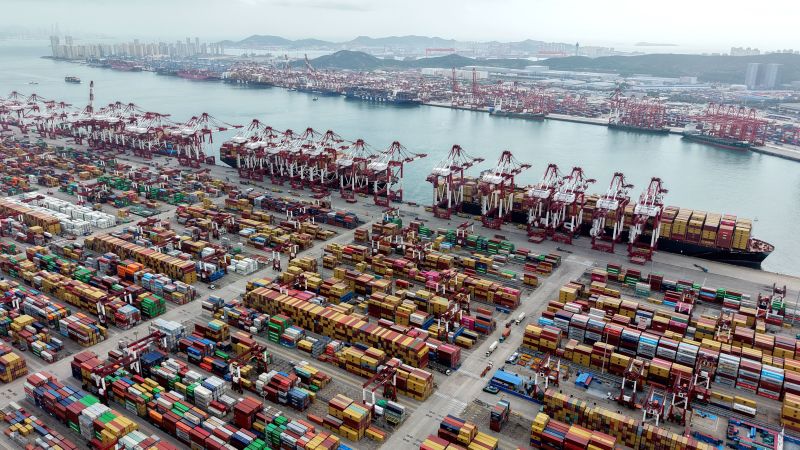Beijing has issued a stern warning of countermeasures against Washington in response to US President Donald Trump’s recent threat to impose a sweeping 100% tariff on Chinese goods. This escalation follows China’s implementation of new export restrictions on rare earth minerals last week, further heightening tensions between the two economic superpowers.
In a statement released Sunday, a spokesperson for the Ministry of Commerce emphasized that threatening high tariffs is not a constructive approach to engage with China. The spokesperson reaffirmed that while China does not seek a trade war, it will not shy away from one if compelled. “If the US persists in acting unilaterally, China will resolutely take corresponding measures to safeguard its legitimate rights and interests,” the spokesperson warned.
China criticized the United States for its unilateral stance and urged for a correction of what it called a “wrong approach.” The statement highlighted the necessity to preserve the fragile progress made in recent negotiations and referred to prior agreements established between President Trump and Chinese leader Xi Jinping.
The Chinese government’s recent control measures on rare earth exports are set to significantly affect global industries and technological supply chains. Rare earth minerals are crucial for manufacturing a variety of products, including everyday electronics, semiconductors, automobiles, and even military equipment such as fighter jets.
The commerce ministry spokesperson defended these export controls as a “legitimate move,” expressing concerns over what they characterized as Washington’s double standards. They contended that the U.S. has consistently misused the concept of national security to impose discriminatory export controls on Chinese products. According to the ministry, the U.S. export control list contains over 3,000 items, whereas China’s list includes just over 900.
Beijing has also pointed to Washington as the primary driver of the escalating trade tensions, given the new restrictive measures introduced by the Trump administration shortly after the latest trade talks in Madrid. These U.S. measures have encompassed the inclusion of multiple Chinese firms on its export control list and broadened export controls to apply to subsidiaries of listed companies. Additionally, new fees for Chinese ships entering U.S. ports have been implemented.
As the situation evolves, both countries remain entrenched in their positions, with no clear resolution in sight. The international community is closely monitoring the developments, which could have far-reaching implications for global trade and economic relations.








